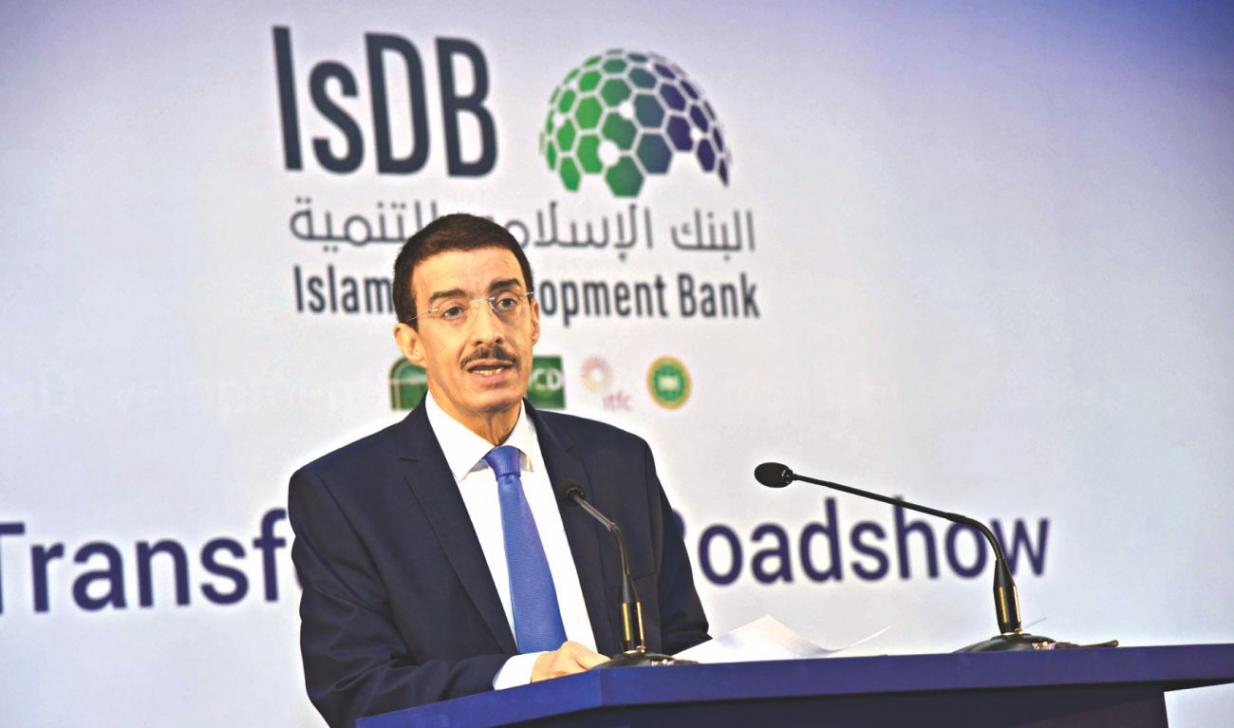Reframing sustainable development in Bangladesh

Bangladesh, the tropical nation of rivers, has only recently caught the attention of the international community for its sustainable development programmes and entrepreneurship. Since 1974, the Islamic Development Bank has been supporting the country's efforts to improve its resilience and reduce its poverty line, and we are proud to be working in close collaboration with the government on its vision towards a prosperous Bangladesh. Containing the most densely populated city in the world and possessing a national GDP growth rate four times that of the United States, the country stands on the cusp of great opportunity. Reframing how we understand 'development' will be key to this success.
Out of our 57 member countries, Bangladesh is the largest beneficiary of the bank's financing and investments, with an excess of $21.9 billion dedicated to several development projects, investment and trade insurances, and public-private partnerships. There are many success stories of development projects in the region, all of which demonstrate their tangible impact on improving the lives of the Bangladeshi people – through agriculture, education, energy, industry, digitisation, transport, water, sanitation, and improved urban services.
Whether that is providing education to more than 52,545 Rohingya refugee children in Chittagong, inventing new varieties of rice and vegetable seeds for farmers in Dhaka, or enhancing the power plant infrastructure to meet the electricity needs of a new generation, we are committed to helping Bangladesh meet a number of the Sustainable Development Goals.
Every single goal -- from 'No Poverty' and 'Quality Education' to 'Peace, Justice and Strong Institutions' and 'Life Below Water' -- is deeply relevant to Bangladesh's future. These guiding targets enable us to tackle the very real and pressing issues of climate change, youth unemployment and private sector growth.
To assist in meeting these challenges, we have decided to increase our resources in the country and open a regional office in Dhaka, which will play a significant role in furthering innovation in partnership with local stakeholders and enhance the capacity of the country's public and private institutions. Under our recently launched President Five-Year Programmes, we will continue to support Bangladesh with our established development partners on the ground, as well as with non-conventional players to further support overall development. The programmes focus on the delivery and adoption of a more dynamic, proactive and result-oriented approach.
Decentralisation is one of the key elements of this, with the aim of increasing the bank's footprint across member countries. Soon, we will be introducing innovative resource mobilisation methods, such as crowd-funding platforms, working together with our partners from the private sector, NGOs, philanthropic associations and academia. We hope this will drive the socio-economic development through conventional and non-conventional investments and help realise its vision of becoming a middle-income country by 2021.
Science, technology and innovation are crucial components to reframing development process in Bangladesh and throughout the world. These three pillars are at the heart of two of our new dynamic initiatives: Engage and the Transform Fund. Engage is the first online platform of its kind, connecting scientists, innovators and entrepreneurs all over the world who are focused on finding solutions to the SDGs. It is also supported by the Transform Fund, a $500-million endowment fund created to promote sustainable development in member countries, including Bangladesh.
As part of this work, we will soon be holding the Transformers Roadshow in Dhaka – a science and technology competition that aims to accelerate region-led development initiatives. The event identifies innovators, scientists and entrepreneurs who are looking for funding, new business opportunities or strategic advice, and connects them to influencers or potential business partners. It is our hope that through finding and supporting new ideas, we will help communities build their own healthy and prosperous futures.
Both initiatives are supported by the government and accelerate Bangladesh's progress towards the SDGs, whilst reinforcing our own objective to transition from a development bank to a bank of development and developers, meaning developers can be corporate companies and private entities as well as development organisations and NGOs. Our role is evolving towards providing beneficiaries with the tools, global networking, and resource mobilisation for the infrastructure required to deliver the desired impact. We're going beyond a simple focus on the volume of funding and our many projects in Bangladesh illustrate the effectiveness, importance and scale of this transition.
The annual financing gap to deliver the SDGs for the entire world is estimated at $2.5 trillion. Our member countries could potentially contribute $1 trillion to the cause, but in order to meet this vast gulf, our perspective on development must shift dramatically. Bangladesh embodies this change and accelerates at pace. Together with its partners and fantastic national talent, it will continue to flourish.
